I found myself in a life I hated
I never thought burnout would affect me, but it did. It crept up gradually until over time, I found myself in a completely alien lifestyle that was destroying my energy and robbing me of my zest for life.
I don't think burnout happens to lazy people. It happens to those who repeatedly force themselves to do something that is contrary to their deep-seated wishes and values. You might not be conscious of what it is you truly want, but your soul still suffers the injury.
If you'd asked me years ago, "Is this the life you wanted?" I would've said "No." The choice would be obvious: a black-and-white decision. But the process was so subtle and gradual, like the frog who slowly gets cooked in a pot of boiling water. We tend to say "Yes" by default to the path immediately ahead of us. Meanwhile, changing tracks entirely seems to be such a big decision that requires tremendous cognitive energy. You worry about making a big mistake. Maybe you don’t even have time to think about these things. There are deadlines, projects, and urgent priorities that cause you to put off making a decision until later, and later, and later.
I joined that company when it was a crown jewel, an up-and-coming star of Silicon Valley. As a true believer and power user, I was super excited about its core product and wanted to learn something about entrepreneurship along the way. I got my hands dirty with almost everything I wanted as a software engineer who was involved in some major zero-to-one product launches. But over time, the engineering orgs became increasingly siloed and divorced from product problems. You were forced to build stuff that was spec'd by product managers who didn't explain the reasoning behind their ideas or the underlying business problems that needed to be addressed. Instead of “Let’s fix this problem” it was “You build this widget.”
After a major shakeup happened in the company, the hierarchy started to fill up with career politicians who kept making major decisions without explaining their reasoning, then later dodged accountability for their mistakes by deflecting the blame to others. Sometimes, you'd have engineers call out these mistakes ahead of time, only to get repeatedly silenced, forced to execute on a doomed project, and then have the project later get axed anyways. We had an entire department of the company laid off for failing to produce revenue — mostly engineers — yet the product leaders responsible for those decisions were actually promoted and re-orged to another team.
In such a distorted and incentive-mismatched environment, the only people who were able to thrive in the engineering orgs were the robots who were completely agnostic to the customer, product, and business. They were the ones who simply executed on pure tech improvements that were abstracted away from practical reality. They didn't care about the core business. They didn't even use the product itself. They had no clue what they were working on or what it even looked like. It didn't matter if you were losing millions of users a month, because you were only concerned with making framework so-and-so 10% faster. I tried to imitate these guys, many of whom were in fact killer engineers, but it was hopeless, since it truly wasn't what I believed in my heart.
Actually, to be honest, I think that if you work on something and have no clue what it does or who the customer looks like, you're a clown. It’s a perverted thing to focus on engineering for the sake of engineering, since the real value of your output is determined by its use among flesh-and-blood humans. If you make something 69% faster but the number of users is zero, then your work is useless. But the corporate environment in that company was designed to weed out people like me, people who had too many ideas and who cared too much about the business. It created a selective pressure that encouraged workers who never asked questions and who only cared about execution, not the purpose of their work.
Sticky glue for moving goalposts
Working in that environment drove me crazy, but as a humble engineer who lacked visibility into the deepest interiors of the business, I couldn’t justify leaving yet. After all, big decisions require cognitive energy, and the same people who excluded engineers from the table of ideas also were very hesitant to give them any ammunition to justify their disputes. To cope with this, I started writing a private journal and keeping track of what business leaders were saying. I made notes of what they were promising and what their goalposts were. I also compared notes with my friends and other people on tech gossip channels. I was able to objectively convince myself that these leaders were promising one thing, and yet doing another, blatantly contradicting their own words and not facing accountability for their poor decisions. For example, when the stock price went down, they said “the stock price isn’t related at all to our performance as a team,” and yet when employees started losing motivation, the same people said “as long as you keep executing well, the stock price will go up”; and this is also obviously bogus, since you could be executing along the lines of an incorrect plan.
When I brought these questions up to my own boss — a gentle and sincere "my hands are tied" technical manager who himself used to be a strong hacker — he told me to ignore those business speculations and focus on executing. No. I’m no longer going to pretend that I don’t care about the business strategy of the company that literally employs me. After overstaying and doubting myself for too long, I decided to just leave.
Over the years, I had lost sight of my own goals and just threw myself at "technically challenging work" that seemed optimal for corporate advancement. I didn't think much about what my long term ambition or dream was. I kept chasing the carrot while avoiding the stick. Back then, I was so stupid that I would’ve jumped off a bridge if someone had told me it was technically challenging. After leaving the company, I was stuck in a void and had to pick up the pieces of what my old life and original goalposts were.
I introspected on what I loved, and I thought about which beliefs were actually authentic to me rather than being imposed upon me by others. I started a routine of physical exercise, daily sunshine, healthy eating, reading, and diving deep on hobbies in order to re-ignite the joy in my soul.
I caught up with friends and acquaintances, many of whom I actually hadn’t spoken deeply with for quite some time. When I talked with my friends, I caught a glimpse of the fragment of my own self that was contained in their memory of who I used to be. I also remembered the reasons why we became friends in the first place. It was truly like plugging back into an old world that I had left behind and remembering all sorts of different things that I used to care about. Like my values and dearest wishes.
I tried to remember my original promises to myself, the original goals that I had for my life.
One of them was this: that I loved East Asia, traveling and existing there, and that I'd promised myself to touch grass in Asia once per year, but I'd broken that promise to myself during the last few years at my work. In fact, I had a lot of crazy dreams related to learning languages, understanding local life, and collecting interesting stories for my own personal view of the world. Beijing and Tokyo had been my two favorite cities in the entire world.
I had continuously said "No" to myself, to my own dreams, for the sake of what apparently seemed good — advancement in a perverted and misaligned corporation — but which was actually killing my soul.
My problem is that I was too damn good at doing homework, and I had wrongly learned the skill of turning off my own desires for the sake of socially-acceptable goodness. This was a good ability to have when you're a foolish and ignorant child surrounded by loving teachers, but it is easily abused by malicious actors who harvest the energy of your soul for the sake of their own business ambitions.
I became convinced that I needed to soulmaxx. I focused on doing what I loved, at a deep level, in my soul, that would help me have joy in my life. My key observable metrics were no longer uptime, DAU's, requests per second, nor were they dollars in my bank account or productivity measurements. I stopped doing homework, stopped following old plans based on old ideas. I needed to rethink all these ideas at a meta-level, from a higher perspective.
With that in mind, I packed my bags and traveled by myself in East Asia.
Being somewhere else
There’s definitely a cohort of anti-travelers who never leave their home countries for one reason or another, who downplay and dismiss the idea that travel can help you with serious matters in life. They say things like, "If you're unhappy at home, you won't be happy abroad.” To them I say: Travel is real. Especially for people who are locked into a certain path and have never branched out of what's immediately in front of them for years. You don’t get this by browsing the internet, reading books, and watching videos. Uprooting yourself from your local surroundings is great for shaking up your assumptions and helping you learn more about yourself. Don’t not travel.
For me, East Asia was not just a random destination. It was the subject of an intense hobbyist interest that I’d been building up for years and also part of my own heritage, since I am Chinese American.
During my travel in Japan, I was surprised to discover that I could actually speak Japanese. I had spent a few years grinding in the linguistic laboratory in a non-Japanese speaking country, studying flashcards, practicing audio lessons, attending language circles, reading manga in its original language, watching anime without subtitles. Now I could actually deploy my skills in real life, and it was actually working. My mind was blown, and my heart was gratified. I had worked on something obscure and it paid off, allowing me access to new experiences and friendships.
In the USA, I loved Japanese television, music, language, food, and cultural trivia. So, actually being in Tokyo and walking around was like being in Disneyland. In my mind, even browsing the Japanese grocery store was something interesting and full of delight.
I also realized that anime is actually real. Not to say that everyone likes anime in Japan, but that its presence in society is orders of magnitudes larger compared to the USA. I saw extremely fashionable young people walking around with cosplays or anime-influenced aesthetics, lining up for pop-up artist events for what I'd consider fairly obscure titles like Needy Girl Overdose. In the USA, anime feels like a 1% statistic, an esoteric hobby, whereas in Tokyo, it feels like something that you see 30% of the time.
I enjoyed doing slow tourism that gave me slices of daily life, especially activities that would allow me to understand what it was like to actually live in that city. For that reason, I greatly valued city walks, meetup groups, deep dive conversations with expats, buying ingredients and cooking for myself, and checking out local bars.
The small bars in Tokyo and Osaka were the best I'd seen in my entire life. Small, inexpensive, friendly, and sometimes some truly amazing drinks, and a perfect opportunity to practice language skills. Playing shiritori and singing zero-English karaoke with new friends at these tiny bars was an insanely delightful treat, and a unique form of language practice. When people asked me, in Japanese, how long I’ve been working in Japan, I told them that I was just a tourist and hobbyist. This was shocking to them. I got to collect some good polyglot stories this way.
So you are Chinese.
Yes.
But you are American.
Yes.
So you speak Chinese and English.
Yes.
But you also speak Japanese.
Yes.
Wow, amazing!
One time, a Japanese college student who had been cultivating English skills as a hobby and attended summer school abroad started chatting in English with me. His friends were mind blown that he had been pursuing his hobby with such seriousness and that he could actually have full conversations with a complete foreigner. “Wow, so cool…He really can speak English…”
Another time, at Osaka airport, during one of the most crowded days I’d ever seen in my life, I asked some questions to a staff member. I started in English. She couldn’t help me. I asked again in Chinese. She didn’t know what I was talking about. Finally I asked in Japanese. “Oh! I understand! Yes, you need to do this, and this, and this…”
I spoke with people who had relocated to Japan about the universal problem of never being able to truly fit in and mesh with local people. I became acutely conscious of the well-known meme that Japanese people are mostly surface-level polite while keeping their deep thoughts within. Indeed, I felt that way when adding Japanese locals on Instagram and LINE; many people just never contact you ever again. So I was greatly moved when I made a monolingual Japanese friend around the same age as me and met up with him three times on different occasions! Lingua-cultural friendship challenge: completed.
During my travel in China, I wanted to search for something that was Chinese and which could make me happy. I had really enjoyed visiting Beijing and the normal bustling life of Chinese people in China, but it was hard to tap into that in the USA. Chinatown wasn't nearly as sophisticated as a true Asian city, and I didn't share many interests at all with recent Computer Science grads who were fresh from China. Over time, I had gotten pretty demotivated since I couldn’t find very many Chinese nationals in America who shared the same interests as me. The conversation was always like, “Have you heard of X?” “No…” And in the USA, you never really get a good excuse to speak Chinese because everyone is so damn good at English.
As expected, I was right: the Chinese mainland is truly a different place. It's a much more holistic and full-spectrum experience compared to the Chinese American world. It was easy to bump into foolish men, digital nomads, people with deep ideological beliefs, people who dropped out of college, and bar hoppers trying to get drunk on a weekday night — all of these types which are difficult to see among Chinese nationals in the USA.
In mainland China, I finally relearned Chinese after years of being frustrated with the language. I basically leveled up to conversational fluency and am pretty much “perfectly fluent” from a polyglot YouTuber perspective. My Chinese started getting good enough that people began asking me “How long have you been living in the US?” Well, I actually spent my whole life there…
I got integrated into the app ecosystem, learned how to use AliPay for everything, bought stuff off of Taobao, used Chinese-only maps apps since they were the only ones that had granular location details, ordered food delivery to an apartment address and handling phone calls in dialectal Chinese to figure out where to drop off my delicious $7 meal, and booked an airplane flight in Chinese with zero English (a language challenge that definitely made me have skin in the game of my own proficiency).
I made quite a few monolingual friends in Chinese, which was a great joy, since I could learn truly about what their lives were like and also get an excuse to deploy my language skills all the time. It was a delightful and jarring experience to be surrounded by so many zero-English speaking Chinese people after being embedded in the highly-English, highly-educated bubble of Silicon Valley.
I hung out with extended relatives for the first time in a long time. It was interesting to see large family gatherings with charismatic uncles, kind and concerned aunties, and also teeny tiny kids running around, since I didn’t have that experience at all in the USA.
Hanging out with expats was generally insane. Here was a highly self-selected group of individuals who had taken the care to learn a totally new language and uproot themselves to live full-time in a different country. I met a lot of old friends who had relocated, as well as new friends, and asked them about life abroad. Many of them ran their own businesses from abroad or found unique employment opportunities as digital nomads. Listening to their adventures made relocation sound like such a tangible and simple thing to do, in contrast to within the USA, where most people whom you self-select to meet cannot even conceive of it. I definitely felt, from a personality perspective, that I had more in common with some of these expat adventurers than my local coworking circle at my corporate job.
The craziness of moving on
In hindsight, the root cause of my previous suffering was an unawareness of my own personality and continually following the default path.
Yes, I know that sounds cliche. In the USA, we are constantly told "Be yourself" and "Follow your dreams." But everything is a cliche until you experience it yourself. Platitudes and newspaper headlines can hit hard when they fall into your life.
Moreover, I think the “Be yourself” ideology of modern America has some pitfalls because there are invisible boundaries that dictate what you’re allowed to do. This is especially true for over-achieving, high-performing types who find themselves in the corporate setting. You are encouraged to “empower yourself and find autonomy at the next level” and choose between tech stack A and tech stack B, but you aren’t allowed, really, to consider the alternative of playing a different game entirely.
Of course, I’m not saying that people should just do whatever they want. I don't believe in dopamine abuse. I don't think that it's wise for a man to just sit at home and eat 20 cheeseburgers every day until he becomes obese. But I do believe in trying to introspect and discern the higher level wishes and joys within your mind. I believe in going beyond the superficial symptoms of malformed thought patterns to address the deeper underlying problems in the unconscious.
What helped me was reconnecting with my old self, collecting my own memories, exploring my own hobbies — some of which were more like the seeds of hobbies and not really something I’d invested in — and diving into my own interests, which added color to my soul, and pursuing those wishes to an excellent level.
I even looked back at my old childhood memories and tried to analyze what I liked to do in middle school and high school. Those, in my opinion, were more authentic expressions of what I wanted to do when others weren't imposing agendas on me. Back then, I was so in love with engineering that I built social websites for fun, tried to launch a video game with my friends, and studied algorithms and machine learning because of intrinsic fascination. I want to rediscover that love and take it back.
At the end of my corporate life, I was stuck in a self-selected, self-reinforcing bubble. I was surrounded by many coworkers who were highly overfitted on locally-optimal virtues, who were single-minded pursuing the IC engineering path, who didn't conceive of relocation, and who loved working at stable big corporations and disliked working at startups, let alone dared to dream of starting their own. All of the idealists and proto-entrepreneurs had already left. It was long overdue for me, too, to go. The reactions of my coworkers: "You're crazy! So when are you gonna get your next job?"
Yeah, I learned that my own wishes are crazy in many ways. And I don’t care. I’m still going to do them. My next wish is to create content, to build independent business projects, and to continue living in East Asia. In the long term, I hope to find a type of work that I truly love that can support my lifestyle and enable me to start a family in the future. I had handed my heart to corporate overlords who shredded it into pieces, but with care and effort, I’m putting it back together.
I've decided to say "Yes" to my crazy dreams.




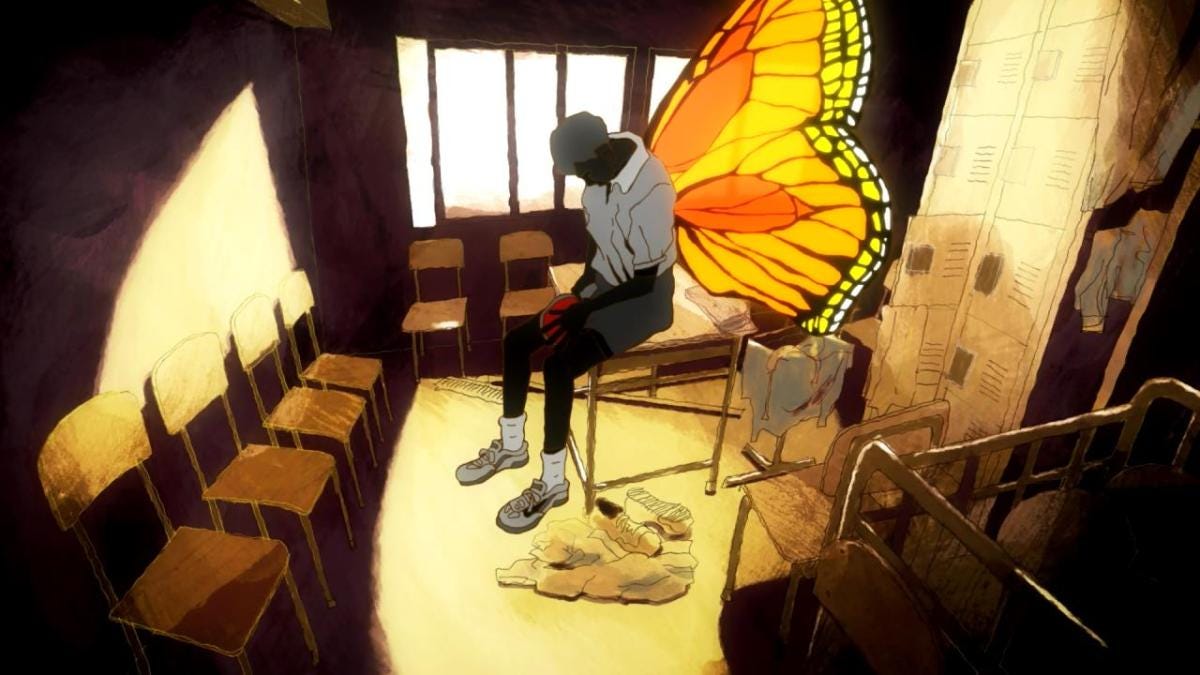
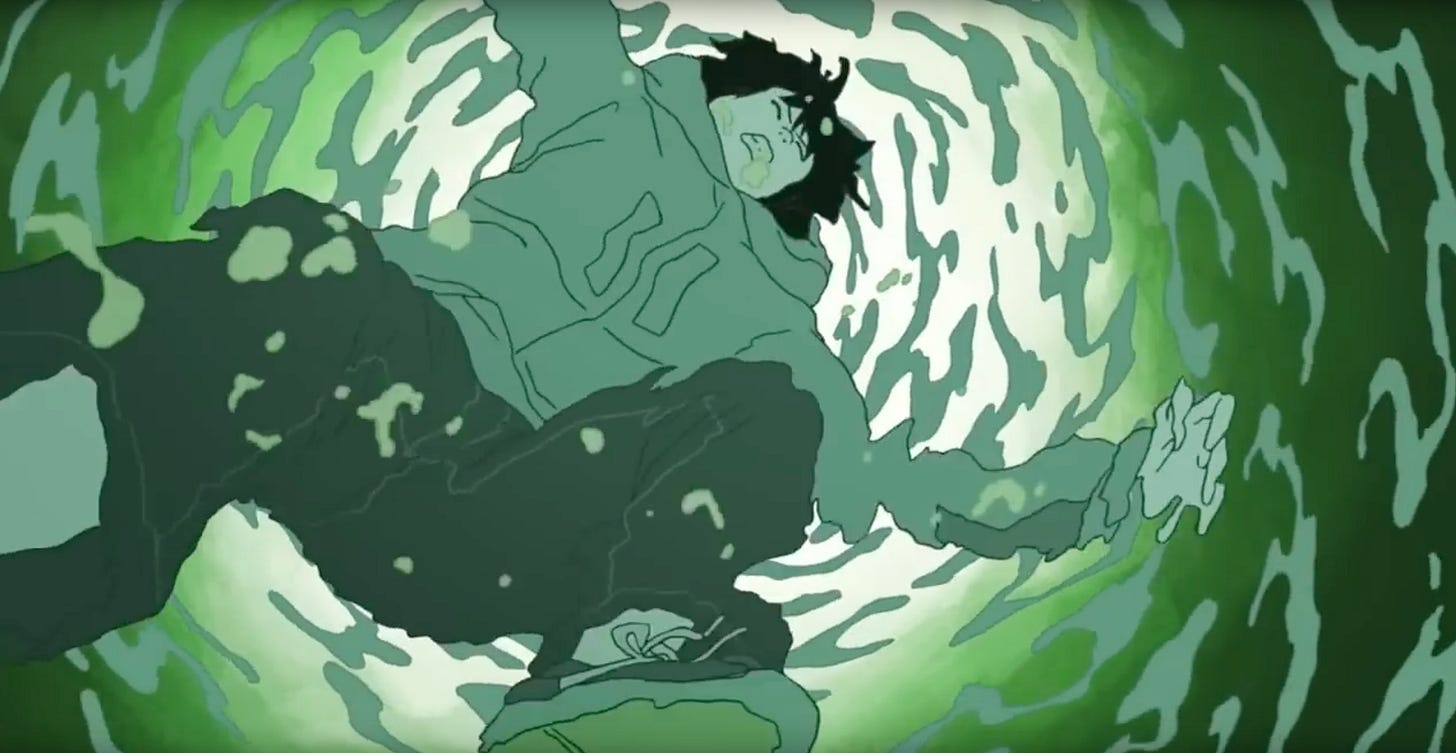

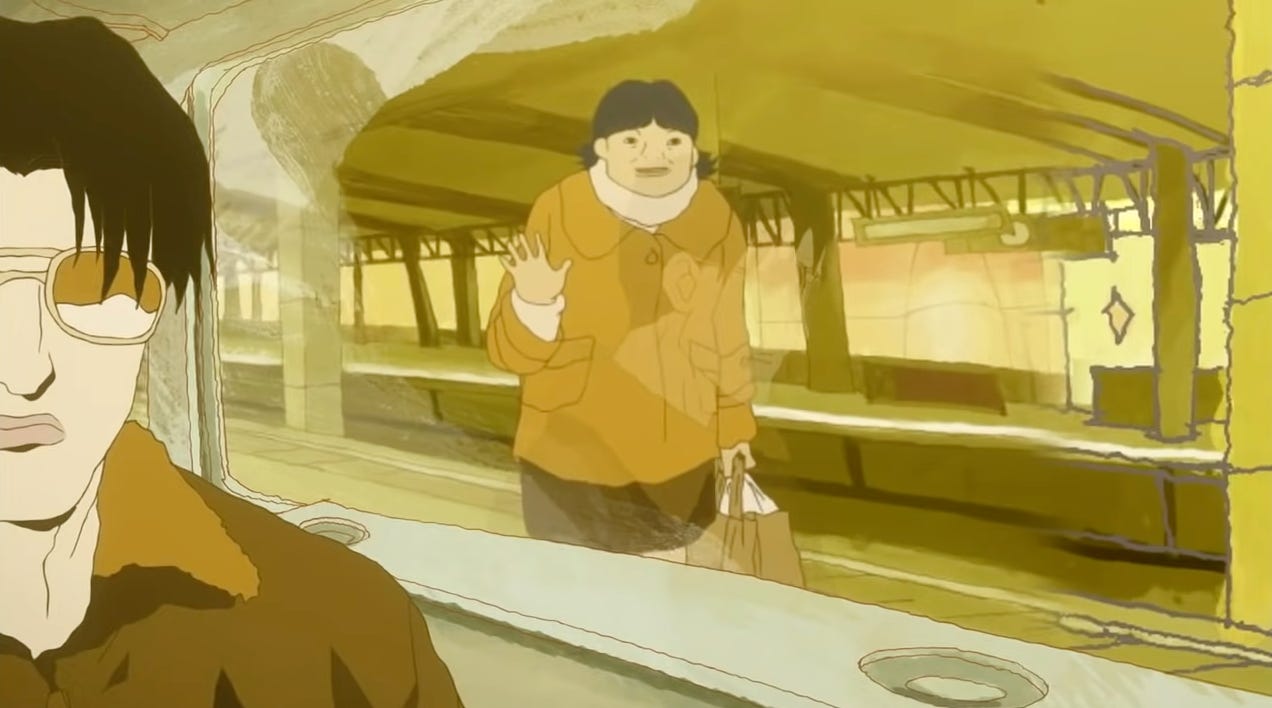






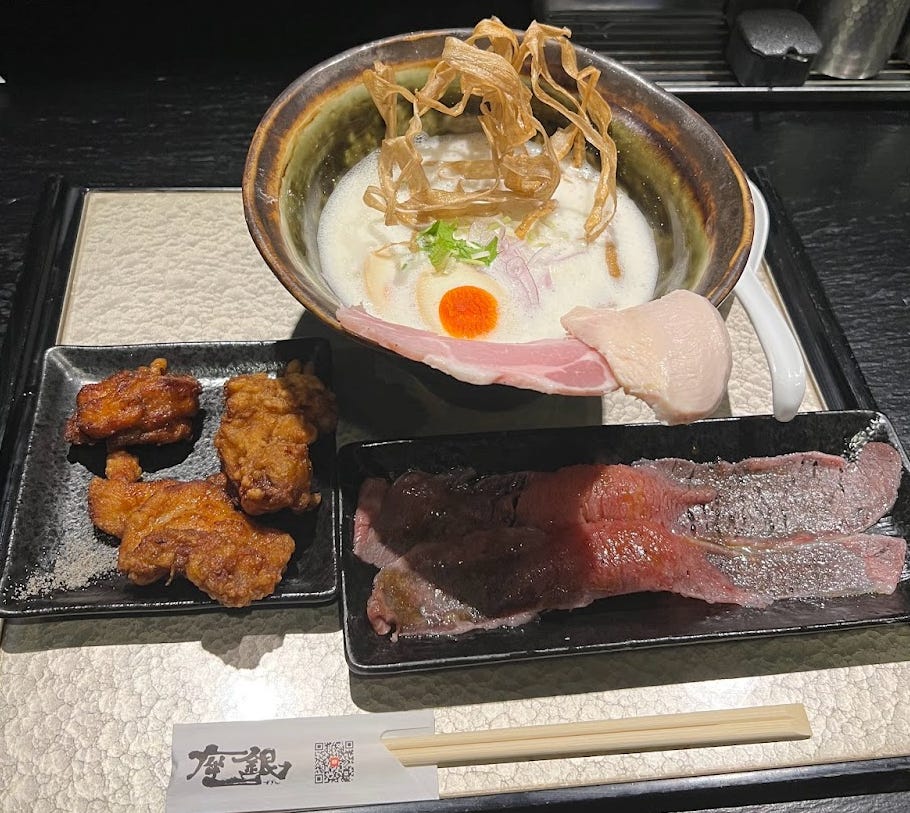




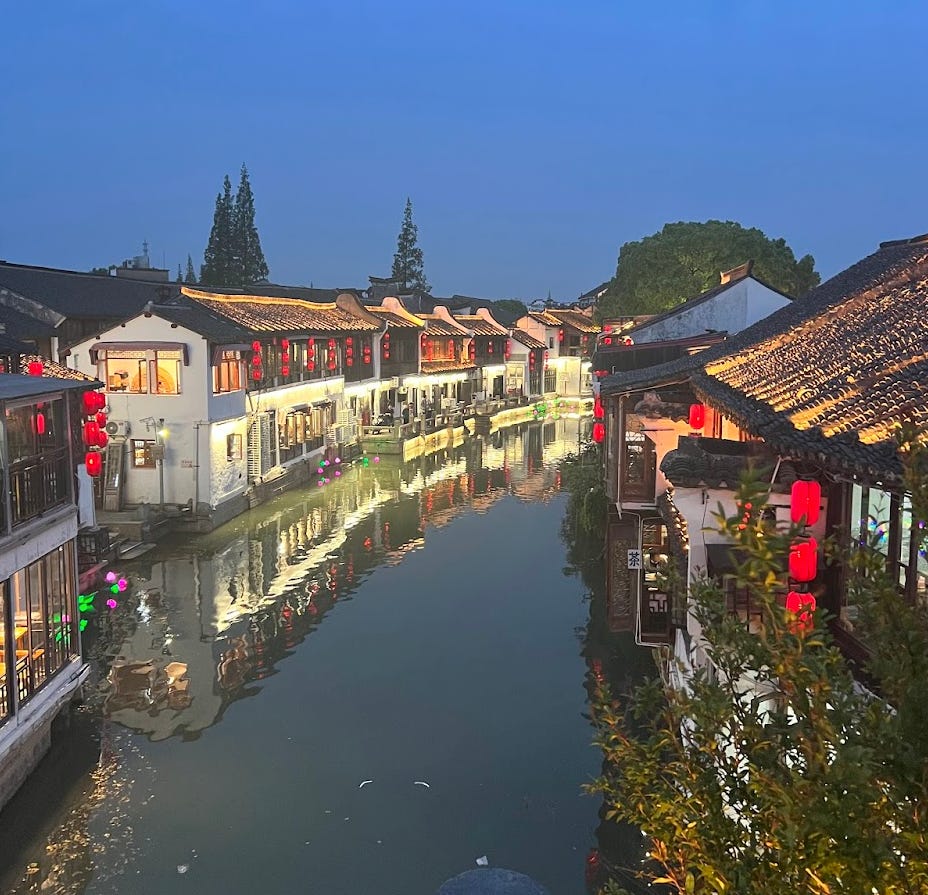


I'm going through some post-job burnout in the immediate. Your story vibes with me a lot and rhymes with my experience. I found it on reddit. Thanks for sharing! I appreciate your concept of "soulmaxxing" .. I need to really hone in on doing that myself.
The corporation I worked for got bought out and I felt the tug and pull of the forces. Software development ("engineering") was caught in the middle of it. It felt like I had to get out the seismic equipment to understand what the mythical beasts in the c-suite wanted when the floors started rattling. Oh, someone told them about some new lucrative revenue stream. So yet another re-org or massive hiring wave needed to happen as a consequence. I had the same conversation you had with my technically respectable boss, who admitted he couldn't do anything and to only worry about things that our in our control: not a lot. ... and yes no direct access to customers; just churn.
I saw that everyone up the hierarchy has one interest and it is to protect their paychecks. This is good in some ways, workers should be self interested, but at some point it gets in the way of the long term goals of the company and everyone is working to protect the paychecks of their coworkers and superiors. It was not received very well when explaining this openly; perhaps even harmful because colleagues sowed doubts saying things like: "better to know the devil you know than the devil you don't know" or "there is no such thing as the 'right' job; this should be easy money!"
It was scary and quite a journey to listen to my doubts and leave. Especially since I have a consistent pattern of doing this after a year across my career. Softwarey things are fun and the standard way of making of living with them are not so much.
We are weirdos who maybe aren't as driven by the paycheck alone. I've also been researching a lot about late diagnosed autism and I am mostly certain at this point that I am on that spectrum. I am also looking back on my childhood-- middle school, high school, a little bit post college... the interests I had back then. Those are likely my "special interests" and part of unmasking is reconnecting with those interests. Building websites and weird tech projects was a passion of mine back then too; especially Linux sysadmin stuff, playing with wires, photoshop, print media, phreaking. I can't be embarrassed by them even though the world is always telling me to conform and be otherwise. Fuck 'em.
Travel charges me up, gives me the simulation and inspiration to do exciting things. Not everyone is like this and that's fine. I can't listen to them. Though when I travel too much then I've found myself stagnating in other ways. Stay in place too much; stagnate in others.
I also have some ambition to dive into Japan. I haven't watched enough subbed anime to be fluent but it seems like an exciting place. I'm curious to follow your journey :)